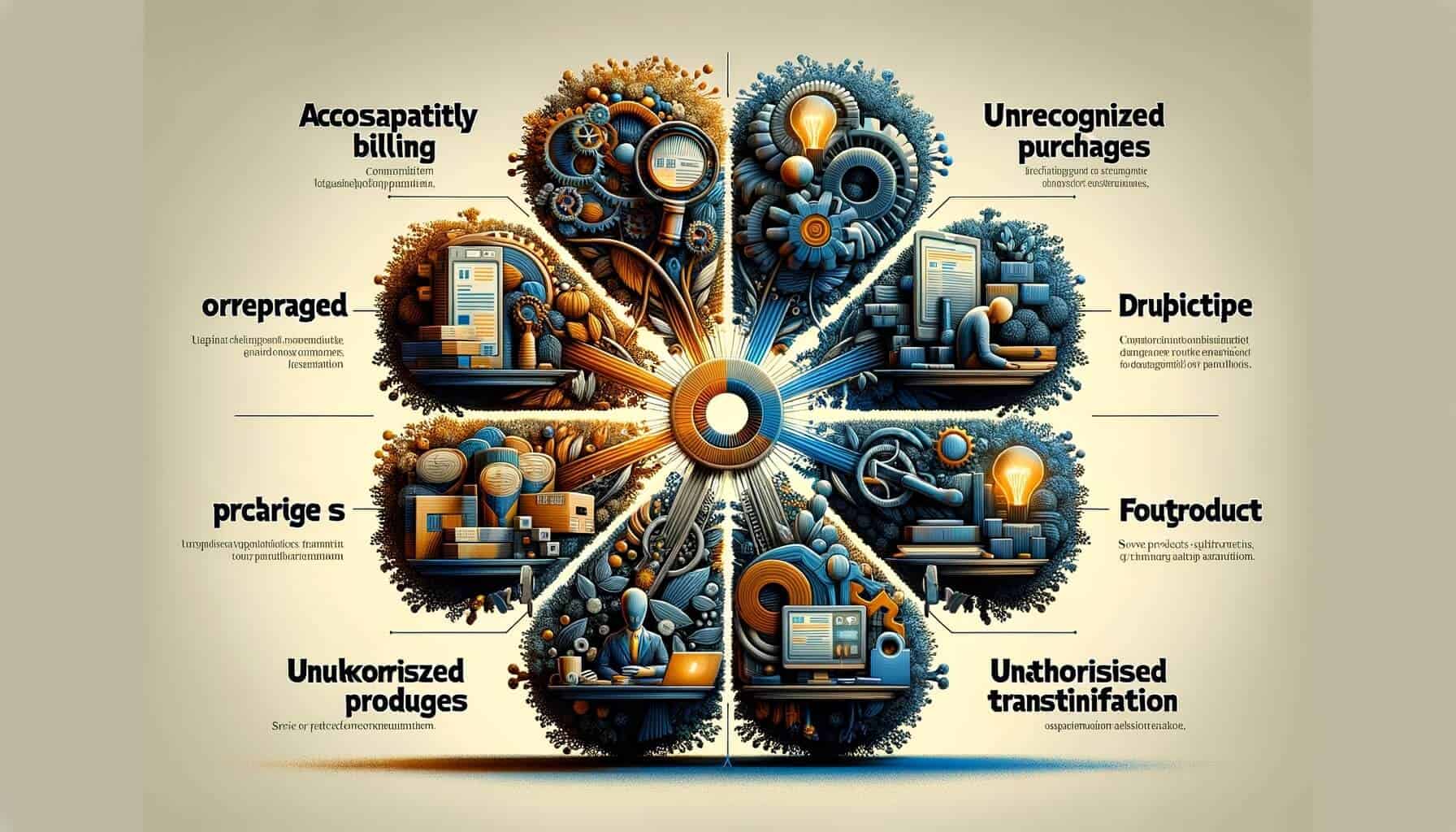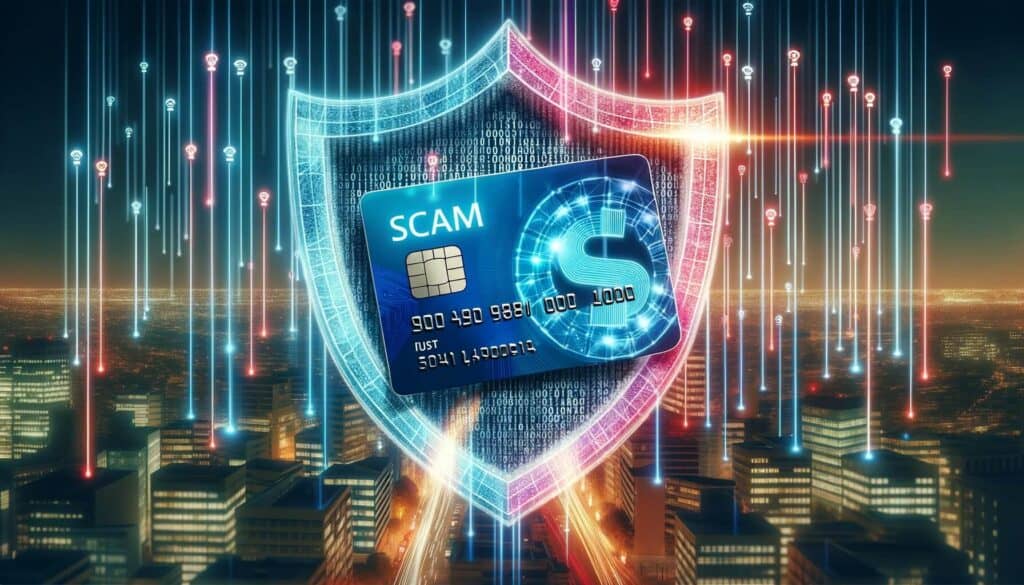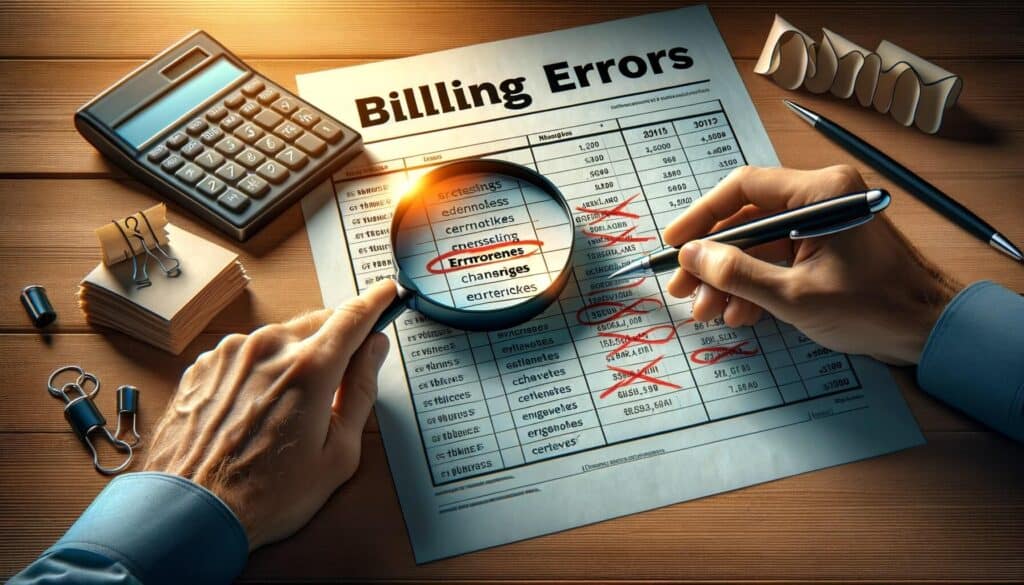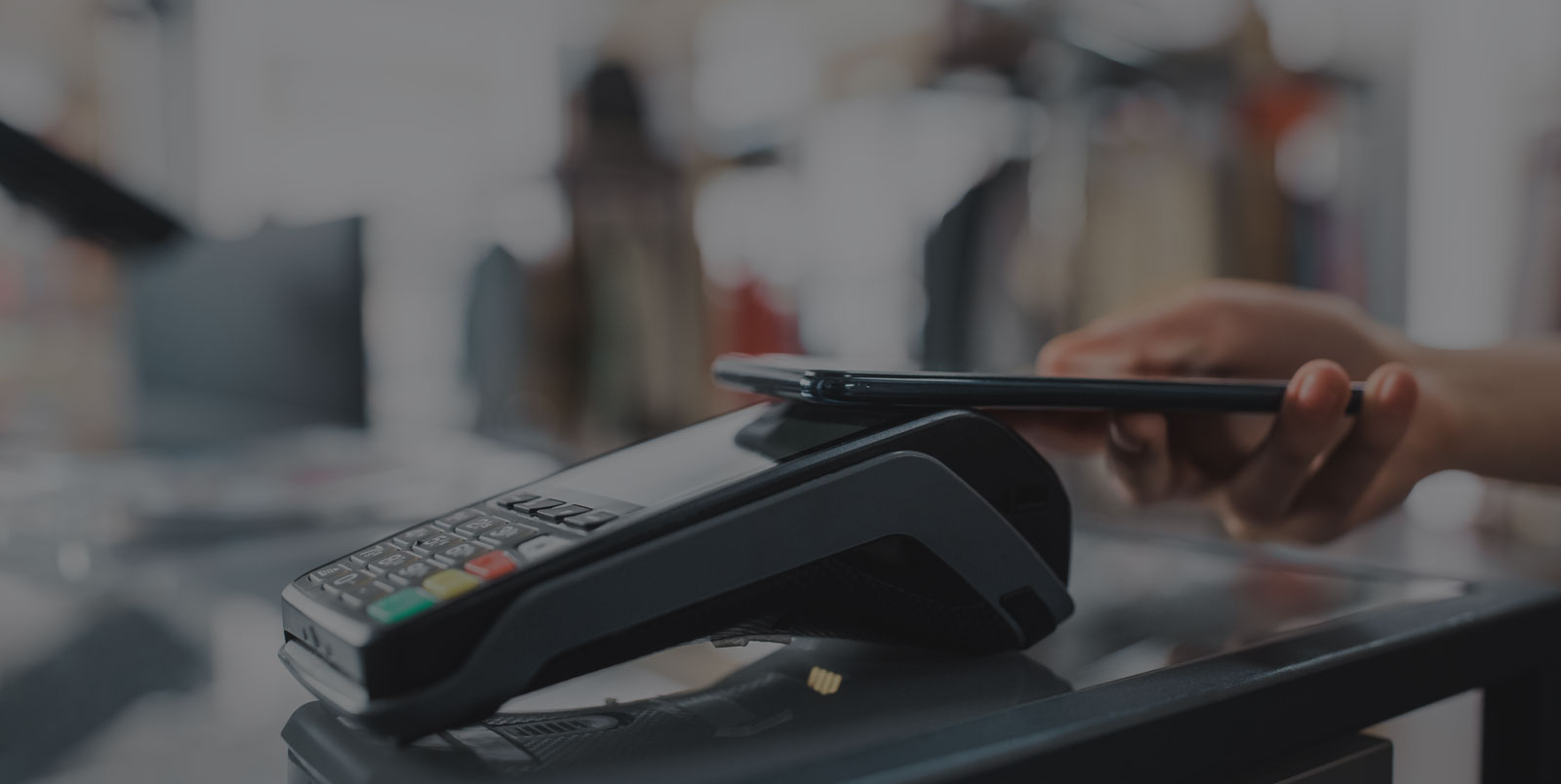
By Cindy Gardea January 13, 2025
Disputing charges is an essential step in protecting your financial well-being and ensuring that you are not taken advantage of by unscrupulous individuals or businesses. Whether it’s unauthorized charges, billing errors, defective products, or dissatisfaction with services, knowing your rights and taking action can make a significant difference in resolving these issues.
In this article, we will explore six legitimate reasons to dispute a charge and provide detailed explanations for each heading and subheading.
Unauthorized Charges: Protecting Yourself from Fraudulent Activity

Unauthorized charges are a common concern for many consumers. It occurs when someone makes a purchase using your credit card or bank account without your knowledge or consent. This can happen due to various reasons, such as stolen card information, identity theft, or even a mistake by the merchant. Regardless of the cause, it is crucial to dispute these charges promptly to protect yourself from financial loss and potential damage to your credit score.
To dispute unauthorized charges, start by reviewing your account statements regularly. Look for any unfamiliar transactions or suspicious activity. If you notice any unauthorized charges, contact your bank or credit card issuer immediately. They will guide you through the dispute process and may issue a temporary credit while the investigation takes place. It is essential to provide any evidence you have, such as receipts, emails, or any other documentation that supports your claim.
In some cases, unauthorized charges may be the result of identity theft. Identity theft occurs when someone steals your personal information, such as your Social Security number or credit card details, to commit fraud. If you suspect identity theft, it is crucial to report it to the relevant authorities, such as the Federal Trade Commission (FTC) or your local law enforcement agency. They can guide you on the necessary steps to take, such as placing a fraud alert on your credit report and monitoring your accounts for any further unauthorized activity.
Billing Errors: Identifying and Rectifying Mistakes on Your Statement

Billing errors can occur for various reasons, including technical glitches, human error, or even intentional misconduct. These errors can result in overcharges, double charges, or incorrect fees being applied to your account. It is essential to review your statements carefully to identify any discrepancies and take prompt action to rectify these mistakes.
When disputing billing errors, start by contacting the merchant or service provider directly. Explain the issue and provide any supporting documentation, such as receipts or invoices, that prove the error. Most businesses have a customer service department dedicated to resolving these types of issues. If the merchant is unresponsive or unwilling to resolve the problem, you can escalate the matter by contacting your credit card issuer or bank. They have dispute resolution processes in place to help you resolve billing errors.
It is worth noting that federal laws, such as the Fair Credit Billing Act (FCBA) and the Electronic Fund Transfer Act (EFTA), provide consumers with specific rights when it comes to disputing billing errors. These laws outline the steps you can take to protect yourself and ensure that the error is corrected promptly. Familiarize yourself with these laws to understand your rights and responsibilities in the dispute process.
Defective or Damaged Products: Seeking Refunds or Replacements

When you purchase a product, you expect it to be in proper working condition and free from defects. However, there are instances where you may receive a defective or damaged product. In such cases, it is essential to dispute the charge and seek a refund or replacement.
If you receive a defective or damaged product, start by contacting the merchant or seller. Explain the issue and provide any evidence, such as photographs or videos, that clearly show the defect or damage. Most reputable businesses have return or refund policies in place to address these situations. They may offer to replace the product, issue a refund, or provide a store credit. If the merchant is unresponsive or unwilling to resolve the issue, you can escalate the matter by contacting your credit card issuer or bank. They may be able to assist you in obtaining a chargeback, which is a reversal of the transaction.
It is important to note that the process for disputing defective or damaged products may vary depending on the type of purchase and the applicable consumer protection laws. For example, if you made the purchase online, you may have additional rights under the Federal Trade Commission’s Mail, Internet, or Telephone Order Merchandise Rule. Familiarize yourself with these laws and regulations to ensure that you are aware of your rights and can take appropriate action.
Subscription Services: Cancelling Unwanted or Misleading Subscriptions

Subscription services have become increasingly popular in recent years, offering convenience and access to a wide range of products and services. However, there are instances where consumers may find themselves subscribed to services they did not sign up for or misled by deceptive marketing practices. In such cases, disputing the charges and canceling the subscription is essential.
If you discover unauthorized or misleading subscription charges, start by contacting the service provider directly. Explain the issue and request immediate cancellation of the subscription. Provide any evidence, such as emails or screenshots, that support your claim. Most reputable subscription services have customer support teams that can assist you in resolving these issues. If the service provider is unresponsive or unwilling to cancel the subscription, you can contact your credit card issuer or bank to dispute the charges and request a chargeback.
It is important to review the terms and conditions of any subscription service before signing up. Look for information on cancellation policies, trial periods, and recurring charges. By understanding these terms, you can make informed decisions and avoid unwanted or misleading subscriptions. Additionally, some jurisdictions have specific laws that protect consumers from deceptive marketing practices. Familiarize yourself with these laws to ensure that your rights are protected.
Non-Delivery of Goods or Services: Ensuring You Get What You Paid For
One of the most frustrating experiences for consumers is paying for goods or services that are never delivered. Whether it’s an online purchase that never arrives or a service that was never provided, disputing the charge is crucial to ensure that you get what you paid for.
If you do not receive the goods or services you paid for, start by contacting the merchant or service provider. Explain the issue and request a refund or a resolution to the problem. Provide any evidence, such as order confirmations or communication with the seller, that supports your claim.
Reputable businesses will typically have processes in place to address these situations and may offer to resend the item, issue a refund, or provide a store credit. If the merchant is unresponsive or unwilling to resolve the issue, you can escalate the matter by contacting your credit card issuer or bank to dispute the charges.
It is important to note that the process for disputing non-delivery of goods or services may vary depending on the type of purchase and the applicable consumer protection laws. For example, if you made the purchase online, you may have additional rights under the Federal Trade Commission’s Mail, Internet, or Telephone Order Merchandise Rule. Familiarize yourself with these laws and regulations to ensure that you are aware of your rights and can take appropriate action.
Identity Theft: Taking Action to Safeguard Your Finances
Identity theft is a serious crime that can have devastating consequences for victims. It occurs when someone steals your personal information, such as your Social Security number or credit card details, to commit fraud. If you suspect identity theft, it is crucial to take immediate action to safeguard your finances and dispute any fraudulent charges.
If you believe you are a victim of identity theft, start by contacting the relevant authorities, such as the Federal Trade Commission (FTC) or your local law enforcement agency. They can guide you on the necessary steps to take, such as filing a police report and placing a fraud alert on your credit report. It is also important to contact your bank or credit card issuer to report the fraudulent charges and request a freeze on your accounts. They will guide you through the dispute process and may issue a temporary credit while the investigation takes place.
In addition to reporting the identity theft, it is crucial to monitor your accounts regularly for any unauthorized activity. Review your bank statements, credit card statements, and credit reports for any unfamiliar transactions or accounts. If you notice any fraudulent charges, contact your bank or credit card issuer immediately to dispute the charges and take appropriate action.
Taking proactive steps to protect your personal information can also help prevent identity theft. This includes safeguarding your Social Security number, using strong and unique passwords for your online accounts, and being cautious when sharing personal information online or over the phone. By being vigilant and proactive, you can reduce the risk of becoming a victim of identity theft.
Dissatisfaction with Services: Addressing Poor Quality or Unmet Expectations
Sometimes, despite our best efforts, we may find ourselves dissatisfied with the quality of services we receive. Whether it’s a contractor who did a subpar job, a restaurant that provided poor service, or a company that failed to meet our expectations, disputing the charge can help address these issues.
If you are dissatisfied with the services you received, start by contacting the service provider directly. Explain the issue and request a resolution, such as a refund or a redo of the service. Provide any evidence, such as photographs or written communication, that supports your claim. Reputable businesses will typically have customer support teams that can assist you in resolving these issues. If the service provider is unresponsive or unwilling to address the problem, you can escalate the matter by contacting your credit card issuer or bank to dispute the charges.
It is important to note that the process for disputing dissatisfaction with services may vary depending on the type of service and the applicable consumer protection laws. Some jurisdictions have specific laws that protect consumers from poor quality services or unmet expectations. Familiarize yourself with these laws to ensure that your rights are protected and that you can take appropriate action.
Frequently Asked Questions (FAQs)
Q1: How long do I have to dispute a charge?
The timeframe for disputing a charge may vary depending on the type of charge and the policies of your bank or credit card issuer. It is best to contact them as soon as possible to initiate the dispute process.
Q2: Will disputing a charge affect my credit score?
Disputing a charge itself does not directly impact your credit score. However, if the disputed charge is related to a loan or credit card payment, it may affect your credit score if it remains unresolved for an extended period.
Q3: What evidence do I need to provide when disputing a charge?
The evidence required may vary depending on the nature of the dispute. Generally, it is helpful to provide any documentation, such as receipts, invoices, emails, or photographs, that support your claim.
Q4: Can I dispute a charge if I made the purchase willingly but later changed my mind?
Disputing a charge based on a change of mind may not be a legitimate reason. However, if the merchant misrepresented the product or service, or if there was a breach of contract, you may have grounds for a dispute.
Q5: What should I do if my bank or credit card issuer denies my dispute?
If your dispute is denied, you can escalate the matter by providing additional evidence or contacting regulatory authorities, such as the Consumer Financial Protection Bureau (CFPB), for further assistance.
Conclusion
Disputing charges is an essential step in protecting your financial well-being and ensuring that you are not taken advantage of by unscrupulous individuals or businesses. Whether it’s unauthorized charges, billing errors, defective products, non-delivery of goods or services, identity theft, or dissatisfaction with services, knowing your rights and taking action can make a significant difference in resolving these issues.
By understanding the importance of disputing charges and familiarizing yourself with the relevant laws and regulations, you can navigate the dispute process effectively. Remember to review your account statements regularly, keep records of your transactions, and be proactive in addressing any concerns or discrepancies. By doing so, you can safeguard your finances, protect your credit score, and ensure that you get what you paid for.
